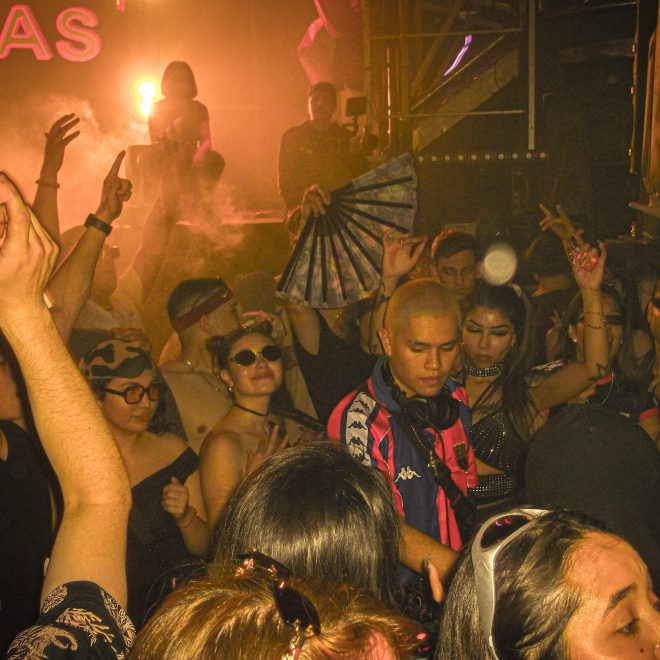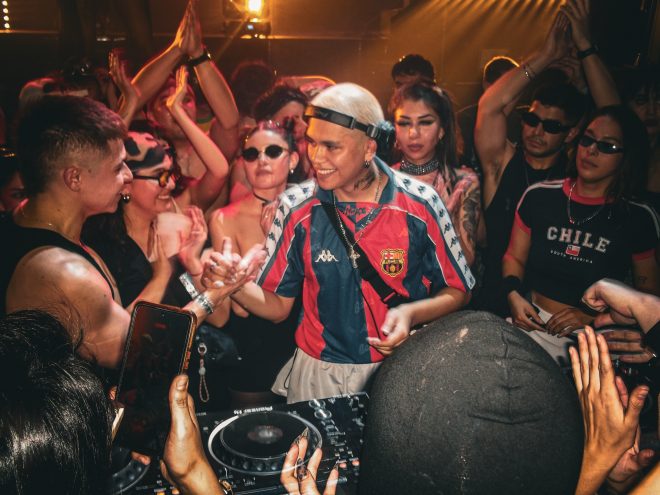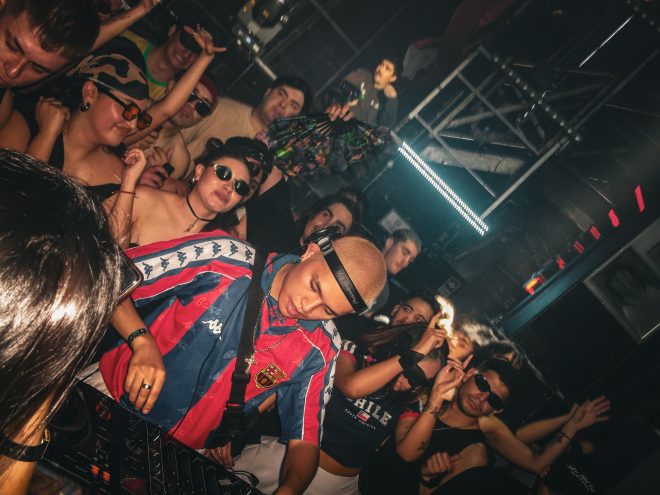Latin beats, cultural power: the Peterblue manifesto

Born in the beating heart of Latin America, in Colombia, Peterblue grew up surrounded by ancestral rhythms: drums, chants, percussion carrying stories of resistance and memory. Even in the flashing lights of international clubs, he carries a mission: to transform Latin music from decorative folklore into a tool of vision, identity, and cultural power. In every beat lies a dialogue between past and future, roots and innovation. His music is not just sound, but a political act, an affirmation that what was once marginalized now rises to redefine global dance culture.
From the very beginning, Peterblue sought to bridge distant worlds: tradition on one side, modern club structures on the other. This was never about nostalgia, but about preserving the value of ancestral memory by turning it into something alive and transformative.
“I always felt that to truly understand something, technical knowledge alone isn’t enough. You need to go deeper and understand the roots, the context, why what you’re doing exists in the first place. For me, that perspective has always been key when creating. I have a very clear rule: if I can’t bring something real, something that musically adds value to a work, I prefer not to do it. I’ve always worked from a place of respect, rescuing elements I grew up with, things that are part of my history and my culture. And I do it with the intention of connecting with people who, like me, share that vision and feel there’s something valuable in what’s ours, in what represents us.”
Here, music becomes politics, not through slogans, but through cultural awareness. Incorporating ancestral traditions is not about aesthetics, it’s about reclaiming identity. When those rhythms enter a club, when a set pulses with that primitive beat, memory is built and identity expands.
For Peterblue, Latin heritage is not only tradition but future. For decades, Europe and North America dictated what was considered “proper” club sound. Now that axis is shifting, and he sees it as his mission to push the sound of his land to the forefront.
“I feel this is a way of starting to decentralize the narrative. For a long time - and especially in electronic music - Europe has set the standard, the ‘proper’ club sound, what was considered ‘good.’ But I believe now we have a huge opportunity to show another universe that’s been there for decades: music, stories, and traditions that have been made invisible or considered secondary within the global circuit. Latin America has an incredible richness, and I’ve taken it as a personal mission to work from there, from what’s ours. What’s wild is that you can already feel how this energy is influencing other cultures, how it’s starting to resonate outside too. I like to think our music always had immense power… it just hadn’t been lit yet.”

When Latin rhythm crosses into global culture, it triggers something primal. It is not meant to be understood but felt. The Afro legacy, blended with Indigenous roots and outside influences, forged a pulse both ancient and universal. Peterblue calls it “tribal,” a rhythm that bypasses the mind and speaks directly to the body.
“I believe Latin America is the result of a powerful mix: Indigenous cultures from the Americas, influences from the northern hemisphere, and above all, an Afro legacy that has profoundly shaped our musical identity. Without a doubt, Afro culture has been key to what we now understand as Latin music. Practically every danceable genre has African roots, with a very primitive, very visceral pulse. I call that sound ‘tribal,’ because it has something ancestral that connects directly with the body. It’s the kind of rhythm you don’t need to understand to feel, you just hear it and you want to move. It’s something beyond rational thought; it’s human.”
What was once dismissed as marginal, like bubbling, raptor house, Latin club, is now headlining festivals. Genres that once lived in the shadows are shaping tomorrow’s main stages, not by compromise but through persistence and the refusal to erase identity.
“Without a doubt, what’s happening today is the result of many Latin American artists who have been pushing this for years. And although I’ve only been deeply involved in this discourse for about four years, I include myself in that. Before the pandemic, for an electronic artist with native sounds, breaking out of their own cultural context was practically impossible without having a ‘foreign’ sound. It was very difficult for anything to transcend if you came from a place like Latin America. But I think with globalization, and all the changes that followed, that started to shift. I feel that the classism that has always been so deeply marked in electronic music is slowly beginning to fade. In the end, everything goes through a phase of acceptance. At the beginning, even the base genres like house or techno were rejected by the ‘good taste’ defenders, yet they ended up becoming the pillars of a culture-defining music.”
As Latin sounds rise into the mainstream, concerns about appropriation or dilution inevitably surface. But for Peterblue, evolution is not betrayal. Music is not a museum piece but a living, breathing force: always changing, always colliding, always creating.
“I feel this is clearly going to keep evolving, and I understand why for many people that could be controversial. But personally, I don’t see it as negative. I don’t like to think of music as something static, like a museum piece that must be preserved intact. For me, music is constant movement. Just like society, it’s a reflection of our minds and how we’re always changing. And in the end, that’s what has generated the biggest milestones in music history: cultural exchange, fusion, mass adoption. It has always been that way. It’s precisely those collisions between worlds that spark new ideas, new sounds, new ways of feeling.”

For Peterblue, artists like him are not gatekeepers but bridges. They bear the responsibility of guiding native sounds into the wider industry, enduring criticism from both underground purists and mainstream skeptics. He embraces that tension, seeing exposure not as a risk but as a tool to elevate production quality and open new paths.
“I feel that trying to evolve a genre or style only from the underground is very difficult. In my case, I’ve had to take on a key role in these first steps of positioning certain sounds within the broader structure of the music industry. And that hasn’t been easy. I’ve had to deal with exposure and also criticism, both from the mainstream side and from the underground. Sometimes it feels like you’re caught between two worlds that demand opposite things from you. But I choose to see that exposure as a tool, an opportunity to elevate the genre, improve production quality, and collaborate with artists who truly add to the process. In the end, if those paths don’t open, the sound remains trapped within itself.”
Syncopation, for Peterblue, is not just a technical trick but an emotional language. It breaks the four-on-the-floor, disrupts predictability, decentralizes the “standard” sound. The dancefloor is hungry for surprise, and syncopation is his way of feeding it.
“I feel it’s a very interesting way of proposing an alternative to the classic four-on-the-floor of disco, techno, or house. The dancefloor is always asking for something new, something surprising, something that breaks the known structure. And that’s been part of my discourse from the start: decentralizing that ‘standard’ sound that’s been installed as the norm. Because dance music is actually much broader than we usually imagine. There are other cadences, other rhythms, other ways of connecting with the body and I think that’s where the truly exciting part lies.”
Surprise itself becomes a philosophy: every track begins with a familiar base but inevitably shifts, introducing a new rhythmic layer or unexpected twist. This balance of recognition and desire has helped him forge a unique identity.
“Exactly, that theory of ‘surprise’ is infallible for me in my sets. I always try to keep people on their toes, never letting the music become predictable. In my tracks, I usually start with a main base to work on, but my goal is always to break that scheme at some point and introducing another rhythmic layer or a change that takes the track somewhere else. I don’t like monotony. Personally, I think that’s one of the keys that has helped give my music a unique touch: creating an identity that can be recognized, but also keeping people wanting to hear more.”
In the end, what sets Peterblue apart is not how loud he can play, but how deeply he can resonate. Latin music in his hands is not embellishment, not nostalgia—it is revolution. A rebellion that slips under the skin, a political act embedded in groove, in rhythm that demands presence.
The most powerful political act is to give space: to amplify ignored stories, to honor silenced instruments, to awaken memories suppressed by uniformity. When ancestral beats rise in the club, they resist standardization and remind people of where they come from, even as they lead them somewhere new.
In this invisible transformation, Peterblue builds his future: an identity reborn, cultures in dialogue, generations finding their voice through percussion, syncopation, surprise. This is how music becomes more than sound, it becomes gesture, community, memory, and promise.


